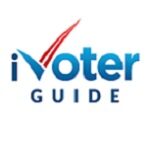Play
Pause
00:00
USCF Supplemental Income Benefit (SIB)
The USCF Supplemental Income Benefit resolves the dysfunction of America’s current welfare system.
The SIB incorporates the 600+ state and federal welfare programs into a single program.
Eliminating the federal and state bureaucracies will free up $2 trillion every year that can be paid out as benefits.
To be clear, the SIB is not welfare.
Workers taking advantage of the SIB do not have to prove need, will not have their bank accounts monitored, will not be required to submit to drug testing, and will never be asked to pay it back; however, only citizens who work can receive Supplemental Income Pay.
Supplemental Income Pay (SIP)
The Supplemental Income Benefit is paid out as Supplemental Income Pay by converting the citizen’s USCF Virtual Funds into real dollars.
SIB can do this at a cost that is significantly less than what the states and federal government currently pays for welfare and entitlement programs.
No matter what type of work citizens are engaged in, individuals who earn less than the GDP per Capita will be notified by their State Management System they are eligible for SIP.
Citizens can be part-time, full-time, an intern, in a residency, even doing unpaid volunteer work, SIP can increase individual yearly earnings up to the GDP per Capita limit of $78,300.
The SIP will match any job up to 40 hours per week and volunteer work up to 60 hours per week.
Couples can both increase their yearly income through SIP; however, no individual can exceed the GDP per Capita limit.
Individuals who receive SIP have it directly deposited into their bank account on the 1st and 15th of each month, separate from their employer paychecks.
Receiving four paychecks each month helps promote financial stability.
SIP example:
The father of a family of 4 works about 40 hours a week, earning $41,600 each year.
The mother also has a part-time job working 20 hours a week and averages 10 hours a week doing volunteer work.
She earns $18,200 a year.
Their combined yearly income is $59,800.
With Supplemental Income Pay the husband’s pay is increased to the $78,300 GDP per Capita limit.
SIP doubles the wife’s pay to $36,400 and adds $9,100 for her volunteer work increasing her yearly income to $45,500.
Their new combined USCF SIP yearly income is $123,800.
Since there are no income or payroll taxes under USCF, they keep 99% of what they earn, leaving them with $122,562.
The USCF Supplemental Income Pay does what welfare could never do for Americans.
It immediately lifts people out of poverty and moves them into the middle class.
The more families earn, the more they have available to spend, save, and invest.
Increased spending power enhances economic productivity.
Saving and investing significantly improves a family’s ability to plan for and achieve their American dream.
Read about the USCF Homeowner’s Benefit.
Return to USCF Benefit Programs.
The SIP will match any job up to 40 hours per week and volunteer work up to 60 hours per week. Couples can both increase their yearly income through SIP; however, no individual can exceed the GDP per Capita limit. Individuals who receive SIP have it directly deposited into their bank account on the 1st and 15th of each month, separate from their employer paychecks. Receiving four paychecks each month helps promote financial stability.
SIP example:
The father of a family of 4 works about 40 hours a week, earning $41,600 each year. The mother also has a part-time job working 20 hours a week and averages 10 hours a week doing volunteer work. She earns $18,200 a year. Their combined yearly income is $59,800. With Supplemental Income Pay the husband’s pay is increased to the $78,300 GDP per Capita limit. SIP doubles the wife’s pay to $36,400 and adds $9,100 for her volunteer work increasing her yearly income to $45,500. Their new combined USCF SIP yearly income is $123,800. Since there are no income or payroll taxes under USCF, they keep 99% of what they earn, leaving them with $122,562.
The USCF Supplemental Income Pay does what welfare could never do for Americans. It immediately lifts people out of poverty and moves them into the middle class. The more families earn, the more they have available to spend, save, and invest. Increased spending power enhances economic productivity. Saving and investing significantly improves a family’s ability to plan for and achieve their American dream.
Read about the USCF Homeowner’s Benefit.
Return to USCF Benefit Programs.








